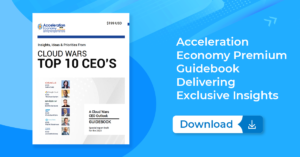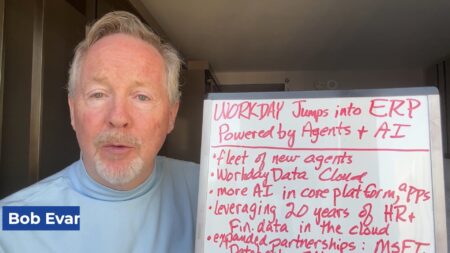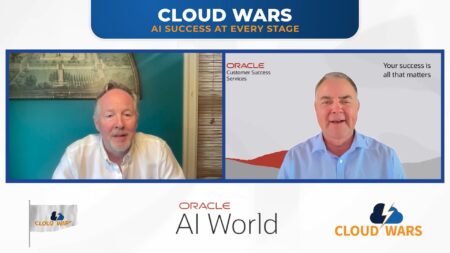
While quarterly earnings calls don’t often veer into the realm of metaphysics, Oracle’s recent fiscal-Q1 call gave Larry Ellison the opportunity to clarify the roles of fundamental forces gravity, data, and artificial intelligence (AI) in our rapidly evolving digital world.
Since the question to which Ellison was responding is rather long, I was going to paraphrase it for you — but, since the topics are so timely and the original question itself is such a doozy, I’ll share the question in its full glory before getting to the real heart of the matter, which is Ellison’s response.
Question from financial analyst to Ellison during Sept. 11 earnings call: “I think it’s fair to say you understand the laws of data gravity better than anyone, and you’ve monetized this fundamental concept as well as anyone over the years. And I recently heard someone say, ‘we’re moving from a world of data gravity to one of AI gravity.’ I’m not sure exactly what that means or if they even knew what that meant. But with AI and other use cases attracting more and more data to central clouds, and with many vendors preaching data sharing instead of what used to be making multiple copies of things and keeping them synchronized, does AI plus cloud in any way break what we’ve always understood about data gravity, and what does that mean for Oracle?”
Now, to be fair, I think the analyst deserves some credit for owning up to the bizarre nature of his question by admitting “I’m not sure exactly what that means or if they even know what it meant.” And as I was listening on the call while that question unfolded, I was wondering just what direction Ellison might take on such an inquiry.
But Ellison, who’s been through about 150 of these quarterly earnings calls since Oracle went public in 1986, took the high road and attempted to offer a serious and insightful answer to a question sitting somewhere between profound and nutty.
“Well, you can’t build any of these AI models without enormous amounts of training data,” Ellison said.
“So if anything, generative AI has shown that the big issue about training one of these models is just getting this vast amount of data ingested into your GPU supercluster. It is a huge data problem in the sense you need so much data.
“For OpenAI to train ChatGPT 3.5, they read the entire public internet, they read all of Wikipedia, they read everything — and they ingested everything,” Ellison said.
“And then you take something like ChatGPT 4.0 and you want to specialize it — for example, say you need specialized training data from electronic health records to help doctors diagnose and treat cancer…. We have an AI partner called Ronin that is ingesting huge amounts of electronic health records to train their models.
“Because AI doesn’t work without getting access to and ingesting enormous amounts of data,” Ellison said.
“So in terms of a shift away from data or a change in gravity with AI, AI is utterly dependent upon vast amounts of training data. Trillions of elements went into building ChatGPT 3.5, and it was multiple times that for ChatGPT 4.0 because you had to deal with all the image data and ingest all of that to train image recognition.
“So we think this is very good for our database business. And Oracle’s new vector database will contain highly specialized training data like electronic health records, while keeping that data anonymized and private, yet still training the specialized models that can help doctors improve their diagnostic capability and their treatment prescriptions for cancer and heart disease and all sorts of other diseases.”
Okay, good to hear that — because from the original question, I was starting to wonder if I should rush out and grab the name Gravity Wars!
But Ellison made it clear that the fundamental forces of the universe still hold, and that the collaboration between AI Gravity and Data Gravity will not only not cleave the cosmos asunder, but will in fact accelerate Oracle’s business.
“We think it’s a boon to our business, and we are now getting into the deep water of the Information Age,” said Ellison. “Nothing has changed about that.
“The demands on data are getting stronger and more important.”
Gain insight into the way Bob Evans builds and updates the Cloud Wars Top 10 ranking, as well as how C-suite executives use the list to inform strategic cloud purchase decisions. That’s available exclusively through the Acceleration Economy Cloud Wars Top 10 Course.










